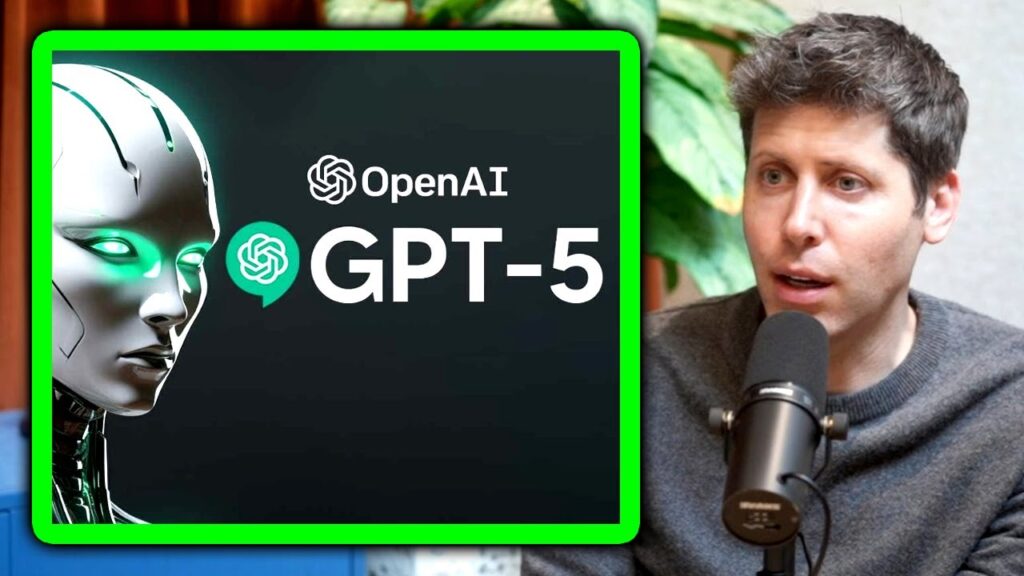The AI world is buzzing again, and for good reason GPT-5 release date is reportedly just around the corner. OpenAI’s latest large language model is being hailed as another step forward, but is it the massive leap that many hoped for after GPT-4? With early reports from testers and cautious comments from OpenAI’s CEO, Sam Altman, GPT-5 is already sparking debate.
In this deep dive, we’ll explore what GPT-5 promises, how it compares to its predecessor, and what the real world implications could be from coding breakthroughs to ethical dilemmas.
Why the GPT-5 Release Date Is So Important Right Now
The significance of the GPT-5 release date lies in what came before it. The transition from GPT-3 to GPT-4 was monumental users witnessed exponential improvements in reasoning, creativity, and factual accuracy. Now, with GPT-5’s release looming, the question is, Can OpenAI deliver another transformative update?
Early testers who signed NDAs report that GPT-5 is stronger at coding and scientific problem solving. However, they caution that the step up may feel more like refinement than revolution.
A Silicon Valley based developer, who was part of a private beta, tested GPT-5 on enterprise grade Python scripts. The model not only detected and corrected logical errors but also suggested optimized data handling techniques based on the company’s database structure. In his words:
It felt like working with a senior engineer. GPT-5 wasn’t just regurgitating code it was solving context aware problems. This showcases one of the ways GPT-5 moves closer to functioning as a truly intelligent assistant, not just a predictive text machine.
In a controlled academic test, researchers used GPT-5 to solve complex multi-step chemistry equations and statistical problems from real college entrance exams. GPT-5 not only solved them faster than GPT-4 but also explained its reasoning with higher coherence.
What the AI Community Is Saying
Sam Altman’s Take: It Feels Like the Manhattan Project, OpenAI CEO Sam Altman recently described the pace of AI development and GPT-5 specifically as very fast, drawing comparisons to the Manhattan Project. This metaphor was meant to highlight both the power and danger of unchecked AI development.
It’s like there are no adults in the room, Altman said in an interview, expressing concern about safety and oversight around GPT-5. This statement has sparked renewed calls for regulatory frameworks and ethical boundaries, particularly with a powerful new model entering public access soon after the GPT-5 release date is officially announced.
Navin Chaddha, a managing partner at Mayfield Ventures, suggested that GPT-5’s true value may not lie in its raw leap over GPT-4, but in its potential to power next-gen autonomous agents. These agents could complete multi step tasks without constant human input a key milestone for businesses.
Early Impressions from Real Users
Some early testers report that GPT-5 offers a more human conversational style, with significantly better context retention. In long sessions, the model shows less repetition and more adaptive behavior similar to how a real assistant might learn your communication patterns.
GPT-5 feels more thoughtful. It doesn’t just respond it anticipates what you’re trying to do. This suggests improvements in dynamic memory, one of the most requested features by developers and researchers alike.
While OpenAI hasn’t officially published GPT-5’s architecture, insider reports suggest it uses test.time compute, where additional resources are deployed during complex reasoning tasks. This means it can think harder on tougher prompts an upgrade from GPT-4’s fixed response pattern.
OpenAI has reportedly built new safety layers into GPT-5, especially around misinformation, bias detection, and prompt manipulation. This comes as global governments push for AI regulation following public concern over AI generated disinformation.
What to Expect After the GPT-5 Release Date
The announcement of the GPT-5 release date marks a new chapter not just for OpenAI, but for the broader AI ecosystem. It may not feel as earth shattering as GPT-4 was in 2023, but GPT-5 could unlock major commercial applications from legal and medical assistants to automated research agents.
It’s no longer just about how smart the model is. It’s about how usefully and safely that intelligence can be deployed in the real world. As we await the official GPT-5 release date, one thing is certain, AI is accelerating, and with it, the responsibility to guide its future grows more urgent.

